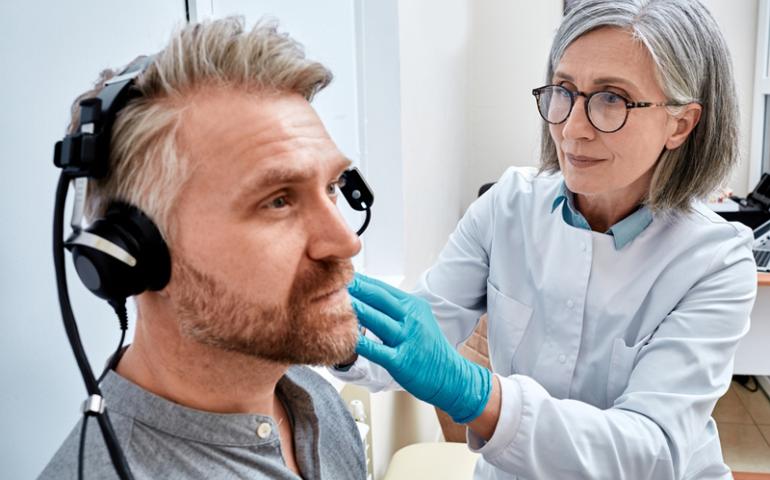What Is Mixed Hearing Loss?
Most people are familiar with hearing loss developing at birth or in their golden years. But, there are a couple of different types of hearing loss that a person can have. Mixed hearing loss is one of these types, and you may find that hearing aids are the perfect solution.
Mixed Hearing Loss
Mixed hearing loss is the result of an inner ear problem and an outer or middle ear problem. The effect on both parts of the ear is what defines the term 'mixed hearing loss'. Audiologists often say this is a combination of conductive and sensorineural hearing loss.
Conductive hearing loss is the formal name given to a hearing problem present in the middle or outer ear. Sensorineural hearing loss is the term given to a hearing problem with the inner ear. This is the most common type of hearing loss that people experience.
Mixed hearing loss can have many different causes, which include:
- Ear infection
- Fluid in the middle ear
- Poor Eustachian tube function
- Hole in the eardrum
- Benign tumors
- Earwax
- Object stuck in the outer ear
- Congenital ear condition
- Toxic drugs
- Illnesses
- Blow to the head
- Aging
- Listening to loud noises
You should get help from an audiologist if you notice that you have symptoms of hearing loss. They will be able to diagnose your condition and determine what caused it.
What are the Symptoms of Mixed Hearing Loss?
People diagnosed with mixed hearing loss can experience different symptoms. Some may only have mild inconvenience, while others may have severe hearing issues. Sufferers will have difficulty hearing in at least one or both of their ears.
Apart from experiencing hearing-related symptoms, some may experience other health issues. These include irritability, lack of enjoyment of music and avoiding social situations. You may also have feelings of depression and isolation, as well as mental exhaustion.
How to Treat Mixed Hearing Loss
Treating this kind of hearing loss comes down to treating both types of hearing loss. Your hearing care professional will need to perform a hearing exam. This can determine the causes of both your sensorineural and conductive hearing issues.
The most common treatment recommended for sensorineural issues is to use hearing aids. You can adjust these hearing aids to treat the specific frequencies that you may have a hard time with. With conductive hearing loss, your audiologist will treat the source of the issue. In some cases, bone-anchored hearing aids may be the best solution.
Contact Us Today
If you're experiencing hearing impairment, then it's time to contact our office. Our hearing care professionals will be more than happy to perform a hearing exam. We can recommend the best hearing aids to meet your needs and budget.






